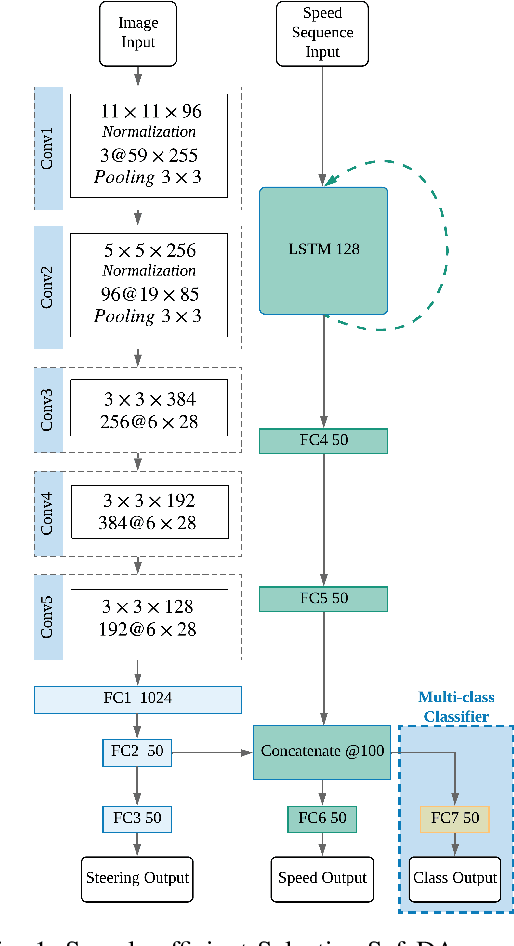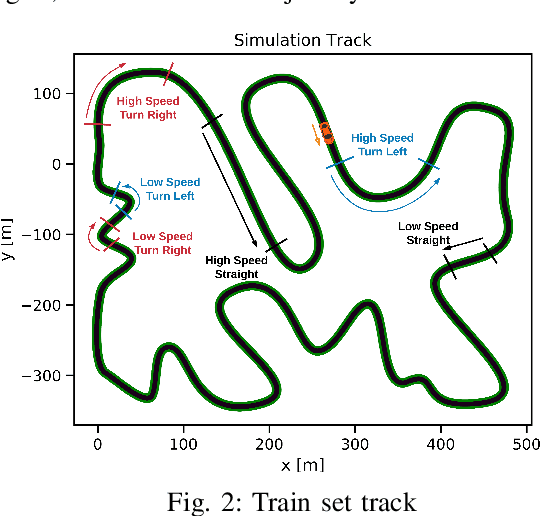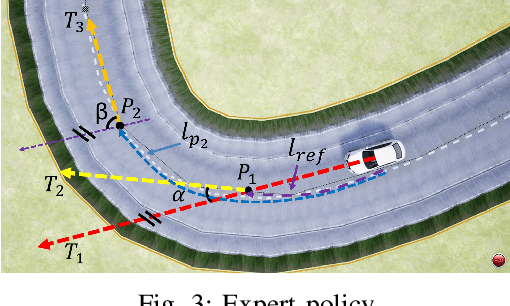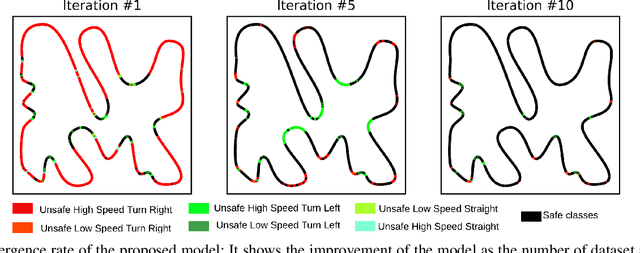Orkun Kizilirmak
Sample Efficient Interactive End-to-End Deep Learning for Self-Driving Cars with Selective Multi-Class Safe Dataset Aggregation
Jul 29, 2020



Abstract:The objective of this paper is to develop a sample efficient end-to-end deep learning method for self-driving cars, where we attempt to increase the value of the information extracted from samples, through careful analysis obtained from each call to expert driver\'s policy. End-to-end imitation learning is a popular method for computing self-driving car policies. The standard approach relies on collecting pairs of inputs (camera images) and outputs (steering angle, etc.) from an expert policy and fitting a deep neural network to this data to learn the driving policy. Although this approach had some successful demonstrations in the past, learning a good policy might require a lot of samples from the expert driver, which might be resource-consuming. In this work, we develop a novel framework based on the Safe Dateset Aggregation (safe DAgger) approach, where the current learned policy is automatically segmented into different trajectory classes, and the algorithm identifies trajectory segments or classes with the weak performance at each step. Once the trajectory segments with weak performance identified, the sampling algorithm focuses on calling the expert policy only on these segments, which improves the convergence rate. The presented simulation results show that the proposed approach can yield significantly better performance compared to the standard Safe DAgger algorithm while using the same amount of samples from the expert.
* 6 pages, 6 figures, IROS2019 conference
 Add to Chrome
Add to Chrome Add to Firefox
Add to Firefox Add to Edge
Add to Edge